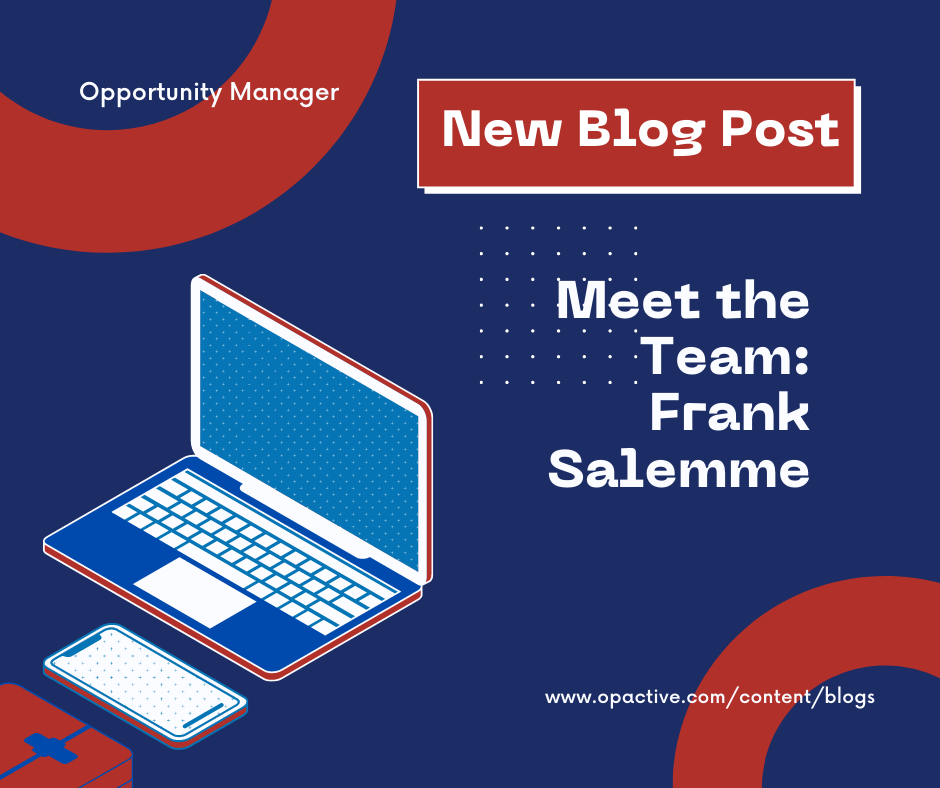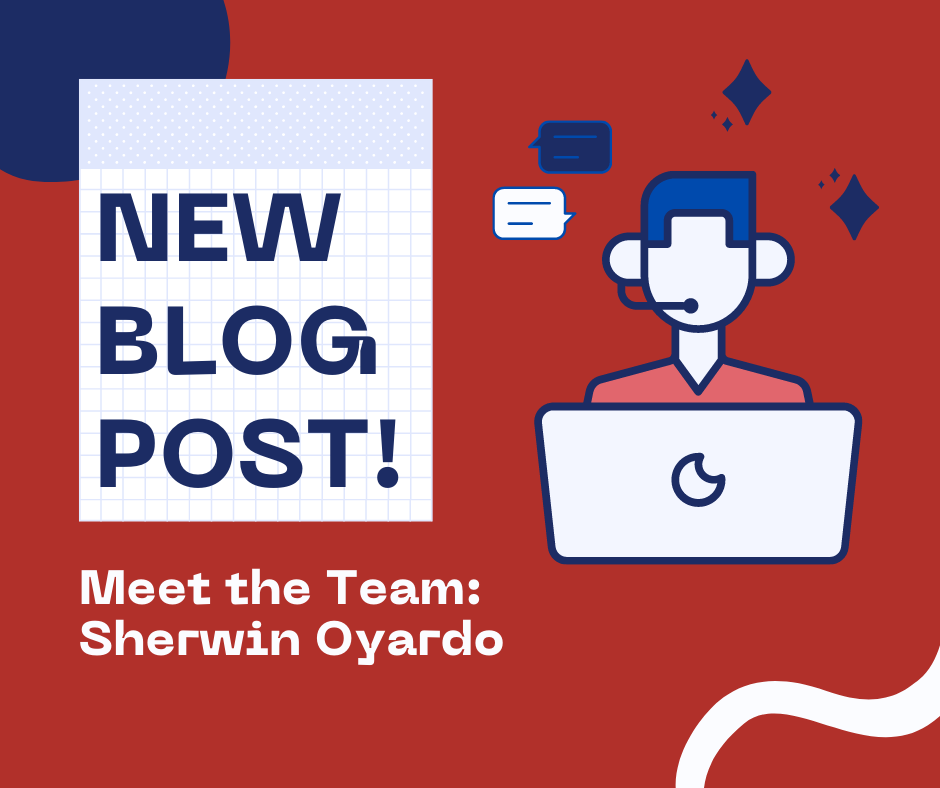
Blogs

When the economy is changing, business owners need to think about ways they can remain profitable and should take steps to ensure their company will remain financially stable. Unbundling is a simple yet effective solution that helps both businesses and consumers by allowing them to maximize their services for lower costs – especially during periods of economic volatility. Businesses save money, and customers are still able to afford services they need.
Why businesses utilize unbundling during periods of economic change
Unbundling is an effective way to save money, both for businesses and their clients. During economic shifts, businesses look to cut costs and save money wherever they can. During a downturn, accessories and products that were once considered necessities become optional as organizations look to cut back on spending. In the HVAC industry, it can be difficult to find areas to cut costs and improve efficiency. This is where unbundling comes in.
Unbundling is a sales strategy where a system is sold separately from accessories, maintenance, and extended warranties in order to provide the customer with a lower initial investment. Additional components to the system can still be added to services a la carte. Providing unbundled services allows clients to have greater control over their spending and gives them more choices when it comes to picking the services they need. This means that both the business and the client can meet their goals without breaking the bank.
Unbundling with Opportunity Manager
Opportunity Manager is dedicated to providing high-quality HVAC software services for our clients at reasonable prices. More than that, we are committed to helping our clients succeed in business, especially during times of economic change. Utilizing Opportunity Manager’s software, you can offer unbundled services to your customers. This practice results in savings for both the business and customer, while still providing the option for further upgrades in the future.
Implementing unbundling in your sales strategy is simple with Opportunity Manager. Our software allows you to completely customize and oversee your business and can assist you with unbundling services as you navigate the changing economy. This helps both you and your customer achieve your goals while still saving money in a tight economic climate. Unbundling, used as a sales tool, strengthens the relationship between a business and its clients while still providing key services necessary for success.
What does unbundling look like in your business? For example, a bundled HVAC sale might include the system, updated wiring, high-quality system accessories (such as a UV air cleaner, programable smart thermostats, and surge protectors), a 10-year warranty, and 2x yearly service. An unbundled sale might include the system, basic wiring updates, basic system accessories, and no servicing or warranties. However, with an unbundled option, clients could still add more accessories, services or warranties later if necessary. This provides savings for your customers, helping them receive the services they need, while also keeping a relationship open by advocating for future services down the road.
The way forward
Opportunity Manager clients can utilize Opportunity Manager’s services to unbundle sales and cut costs anytime. By providing unbundled services to your customers, you are providing savings and strengthening the relationship between your business and the client. The HVAC industry is vital to all areas of production, and we want to ensure that productivity is not hindered when the economy changes. This way, we can still collaborate to provide high-quality HVAC services at costs that make sense for your business. When the economy changes, every business and sector in the nation is impacted, but by collaborating to create unbundled solutions, any negative effects are mitigated and you can continue to provide clients with top-level service.

When the HVAC industry faces periodic market fluctuations, companies must adapt to the changing landscape to ensure continued profitability. One critical aspect of thriving during lean times is improving processes to create more efficiencies across sales and install teams. In this blog post, we will explore how a software solution like Opportunity Manager can help teams become more effective by tightening operations and streamlining the sales and installation processes.
Create Structured Sales Processes
When HVAC companies face increased competition for services, especially when operating with leaner teams, having the right software in place can support sales teams in maximizing the impact they can make. By managing leads, proposals, and contracts within a centralized platform, the sales team can optimize their efforts and focus on high-potential opportunities.
Opportunity Manager enables sales teams to personalize the buying experience for homeowners while automating repetitive tasks and generating sales performance reports – allowing teams to focus more time and energy on lead generation and closing, rather than on time-consuming administrative tasks.
Avoid Underbidding
When homeowners are more price-sensitive, HVAC companies often underbid to secure projects. However, if a project requires more labor and hours than bid upon, it can tie up resources and result in lost revenue.
By utilizing a software solution to analyze past projects, performance, and labor costs, HVAC companies can gain data-backed insights to inform their bidding strategies. Armed with this information, they can set competitive yet profitable rates for their services, ensuring they do not compromise their bottom line while keeping a competitive edge.
Manage Install Time
When the market is hot, HVAC companies might overlook time overruns on projects, as profits compensate for the additional labor costs. However, in a more competitive market, every minute counts.
A proper software solution will include the ability to plan for and track technician labor hours and allow service managers to monitor on-site activities. With precise labor hour tracking, service managers can identify inefficiencies and areas of improvement, avoid unnecessary delays and allocate resources more effectively, ensuring teams spend an appropriate amount of time on-site, thereby maximizing productivity and profitability.
Maximize Profit Opportunities
In addition to new installations, companies can use HVAC software to maximize other profit opportunities. For instance, Opportunity Manager can support sales teams in implementing an accessory selling strategy that offers accessories with each proposal. HVAC software can also streamline maintenance and upgrade schedules, enabling companies to proactively connect with customers and capitalize on recurring revenue streams.
While market conditions that are less than favorable may pose some challenges for HVAC companies, they also present opportunities for growth and improved efficiency. By adopting proper HVAC software like Opportunity Manager, businesses can optimize internal processes, avoid underbidding, plan for and track technician labor hours, prevent excessive time on-site and streamline opportunities for additional revenue streams. These benefits allow HVAC companies to navigate changing market conditions more effectively, safeguarding their profitability and ensuring long-term success in a highly competitive industry.

In our new series, we will be introducing you to some members of the Opportunity Manager team! Read on to learn about Andy Miller, an Opportunity Manager Training Specialist.
What is your name and role at the company?
• My name is Andy, I am currently a Training Specialist at Opportunity Manager and assist with Technical Support of the software.
What do you do in your role at Opportunity Manager?
• In my role, I work one-on-one with clients to help them utilize and understand how the software functions. I also assist them with best practices on how to use the software most effectively for their business.
How long have you been with Opportunity Interactive and what did you do before working here?
• I have been with Opportunity Interactive since April 2001 and was their first full time employee! I have witnessed this company grow into a flourishing business that focuses on their clients and their employees.
What do you like to do outside of work?
• I have lived in the Seattle area for all but 5 years of my life. I am a husband and father of three daughters who have kept us busy for 20 years! Besides the family, my main passion is officiating football. I have worked at the high school level for 17 years with four state championship games. I also worked a few years in the small college level, work the Seahawks practices and occasionally get to work on the chain crew at the Seahawks games!

In our new series, we will be introducing you to some members of the Opportunity Manager team! Read on to learn about Frank Salemme, Opportunity Manager’s Data Entry Specialist.
What is your name and role at the company?
• My name is Frank, I am the Data Entry Specialist at Opportunity Interactive.
What does your day-to-day at Opportunity Manager look like?
• My role primarily involves updating our client’s costs for the items in their Opportunity Manager software when they receive new costs from various manufacturers. I also handle updates for non-cost items (e.g., updating descriptions, images), adding new items, and restructuring the hierarchy containing items in the client’s software. In addition, I conduct audits of client’s items in order to update their items’ descriptions, images, or other data. My other related responsibilities include updating copies of manufacturer databases to be stored internally and used during these updates.
How long have you been with Opportunity Interactive and what did you do prior to working here?
• I have been at Opportunity Interactive since April 2019. In my previous roles, I gained experience in conducting data entry & administration, as well as working in customer service, reception, and IT/tech roles at various companies and at a local government organization.
Anything else to share?
• I am currently working towards a B.S. in Computer Science and previously earned a B.A. in History & a Master of Liberal Studies. I am originally from the Midwest, from the Chicago suburbs. I lived in that region most of my life before moving to Nevada about an hour outside of Las Vegas close to the Utah border & now live in a suburb of Seattle.

In our new series, we will be introducing you to some members of the Opportunity Manager team! Read on to learn about Sherwin Oyardo, Opportunity Manager’s IT Technician and Systems Administrator.
What is your name and role at the company?
• My name is Sherwin, I am the IT Technician and Systems Administrator at Opportunity Interactive.
What does a typical day at Opportunity Manager look like for you?
• I support both the Opportunity Manager application and Opportunity Interactive employees. My day-to-day consists of monitoring for, and resolving, client/server-side application issues. Internally, I organize, install, and support our company’s remote computer systems and networks, ensuring our employees have all the tools and resources they need to deliver high-quality service and support to our valued clients. I hold current certifications with AWS and CompTIA, and am currently pursuing others as my role and responsibilities with the company scales.
How long have you been with Opportunity Interactive and what did you do prior to working here?
• I have been employed with the company since May 2018. Prior to entering IT in 2015, I served 10 years with the US Air Force, four years in active duty and six years in the reserves, as an aircraft mechanic. Since 2015, I’ve held roles in computer hardware repair, network administration, server management, cloud technologies support and enterprise-level technical support.
Where are you located?
• I was born and raised on Guam. In 2010, I was assigned to Little Rock Air Force Base, before landing in McChord Air Force Base in 2014. I called Washington state home for six years before relocating to the San Antonio area in 2020 with my wife and daughter.
What do you like to do outside of work?
• In 2021 we were blessed with a second daughter, so like all #GirlDads my personal time is spent with my girls. We take full advantage of the Texas weather and go on plenty walks as much as possible!

The lack of a dedicated, unique sales strategy is a common deficit for many HVAC companies. This is especially true when it comes to having an accessory sales plan. While most sales revenue comes from the cost of installing systems, some businesses may not realize how dramatically their profits can increase by focusing on accessory sales.
Opportunity Manager gives your team the capability to implement an accessory selling strategy that guarantees accessories are offered on every proposal. In today’s blog we are going to dive into the benefits of accessory sales and how they can boost your company’s overall profits, as well as discuss how Opportunity Manager can help!
Why focus on accessory sales
By creating an accessory selling strategy, you can effectively increase your business’ profitability and success. Accessories have a higher profit margin than any other part of a job, so boosting accessory sales will help you drive up total profits. Many accessories also require periodic maintenance, which help generate recurring revenue each time your team services the product. This is especially helpful for the off-season as these sales can help create additional year-round work for your technicians.
Accessories are also useful for boosting your company’s credibility and building customer relationships. Studies have found that consumers are more likely to trust product recommendations and make a purchase from an experienced technician. Companies should ensure their technicians are well versed on product information and should encourage them to advertise the appropriate accessories for each customer. Even if the technician does not end up making the sale, they have established rapport with the customer, who may be more likely to buy from them in the future.
How Opportunity Manager helps
Opportunity Manager helps you implement an accessory selling strategy simply and effectively. With our software you can build a structured sales process that guarantees accessories are offered on every proposal. Using our unique proposal templates, our system automatically builds in everything needed for a specific type of install, including the accessories you would like to offer. This allows customers to see the accessories in the proposal ahead of time, rather than learning about them at the end of a sale.
We also offer the ability to set up tiered financing on every proposal, which helps drive buying decisions, increase closing ratio, and boosts accessory sales. Using Opportunity Manager, our clients have seen an average accessory sale increase of 30%!
Accessory sales are a great area to focus on if you are looking to increase company profits. Companies often overlook the amount of revenue accessories can generate until they begin incorporating a dedicated accessory selling strategy. Connect with Opportunity Manager to learn more and to start boosting your business’ accessory sales today!

In our last blog, we discussed some of the top benefits of sales software for HVAC companies, including increased communication, efficiency and profit. Companies need modern software solutions to keep a competitive edge, but it is important to note that software is a big investment. Businesses should research their selected software and make sure the return on investment is logical for their company. In today’s blog, we will be diving into calculating return on investment and will provide you with real-life examples of the results you could see from Opportunity Manager.
What is return on investment?
Return on investment, or ROI, is a way to measure an investment’s cost versus its benefit. Calculating a software’s ROI prior to the initial investment is critical, as you will be able to estimate the profit your business could make. However, it is important to look at ROI over the course of time and recognize it may fluctuate year to year. For example, the first few months after implementation will likely produce a lower ROI, as compared to the entire year. Businesses also need to consider intangible costs such as training, productivity and implementation time when making their calculations. While ROI is not a perfect science, it is still useful for getting an estimate of the benefits your company will receive.
Opportunity Manager’s ROI
ROI will vary for each business depending on a variety of factors including region, market and business practices. When it comes to Opportunity Manager, some of the biggest contributing factors to ROI include sales price, closing ratio and accessory sales. To showcase Opportunity Manager’s ROI for its clients, we pulled data from our current clients to show the average results our dealers see after implementation in each of these three factors.
Many of our clients come in with respectable sales prices but are looking to raise them. On average, our clients see a sales price increase of $2,200, but we have had clients boost their sales as much as $3,400 as compared to before using Opportunity Manager. Our professional proposals and unique comparison tool allow customers to view all their options and make an informed decision that’s right for them.
Closing ratio is one of the most important factors in boosting revenue, and Opportunity Manager has proven it can improve a sales team’s closing ratio. Typically, our clients see an average closing ratio increase of 16% after implementation. Opportunity Manager provides detailed closing reports that allow clients to track this data over time and make the necessary changes to improve.
Accessory sales are not always considered valuable in the HVAC industry, but due to their high profitability they are a key driving factor in increasing your business’ ROI. A high number of Opportunity Manager clients have increased their company’s accessory sales after using our program. By utilizing our application, techs and sales associates can pull up an accessory list on the job site, allowing customers to see exactly what they’re getting and ask questions. With this capability, Opportunity Manager dealers see an average of 30% increase in accessory sales, contributing significantly to higher annual gross profit.
Implementing a sales software for your business is a big investment. There is a lot of time and money that goes into a successful implementation, but the payoff is worth it. Opportunity Manager is proud to support our clients in growing their businesses and becoming more effective, efficient and profitable. To hear what our current clients have to say about their experiences with Opportunity Manager visit https://www.opactive.com/content/testimonials or reach out to us today!

In today’s competitive climate, it is important that businesses employ modern technology if they want to maintain an edge in their industry, and HVAC companies are no exception. Implementing a sales software can help your company boost efficiency and profits, all while making the lives of your employees and clients easier. Read on to learn more about the top benefits of software for HVAC companies and to see if a software solution such as Opportunity Manager is right for you:
-
Seamless sales process and communication
When seeking out a sales software, it is important to find one that will improve your organization’s communication. Miscommunication is one of the leading causes of omissions and call-backs, especially if a company does not keep a digital record of information. Implementing a communication plan can help businesses see significant upticks in their sales and return on investment. By ensuring your team is connected from sale to install, you can effectively reduce mistakes and increase profits. For example, when your techs have access to detailed instructions and photos, rather than referring to hand-written notes, the risk of mistake is reduced. Having a digital communication platform can also help you boost sales. Many platforms, such as Opportunity Manager, give techs access to full materials and equipment lists, which allow customers to purchase additional products or services on-site. Rather than having to wait for a return phone call or consultation, customers can review options and discuss details with the tech that day. Having all your business’ information on one accessible platform is a great way to help enhance communication and advance your company.
-
Increase efficiency
Alongside bettering employee communications, sales software programs also help boost your company’s efficiency. HVAC software systems generally come equipped with a variety of labor and time saving tools. For example, rather than wasting time writing out multiple proposals by hand, the right software system will allow you to automatically generate multiple professional proposals to show clients. If you are looking to save time on the business management side of things, software can help there too! Many programs like Opportunity Manager allow you to maintain a database of your products and pricing that you can edit quickly and efficiently from the application. By automating these processes, you will be able to redirect your saved time back into other important areas of your business.
-
Understand your business better
Another benefit of implementing a software program is reporting. Some HVAC and field tech programs offer reporting at various levels, so make sure to research what areas you would like to see reports on and verify that your chosen software can deliver. Some helpful reports to look for include sales performance, lead tracking, profitability, and labor efficiency. By tracking data in these areas, you will amass a collection of knowledge about your specific business practices. Additionally, as you continue to follow this data over time, your reports will become increasingly helpful and accurate. You will be able to see the exact areas that need improvement, as well as areas where your company is excelling. Reporting is essential for gaining a comprehensive understanding of your business, and software programs are far more efficient than tracking data by hand.
With Opportunity Manager, your business will get all these benefits and more! As a leader in retail sales and operations software for the in-home sales industry, we understand you want to make the right investments for your company. That is why we work diligently with clients to ensure they are getting the most out of our software! To learn more about the benefits of software for HVAC companies, reach out to us at info@opactive.com or fill out our contact form.

Organized cybersecurity crime is continuing to rise, with experts anticipating cyber-attacks will cost the world a record breaking $6 trillion this year. It seems like every day a new company or organization is making headlines due to a data breach, and about 95 percent stem from human error. Today, we’re going to outline the most common cybersecurity mistakes companies make and provide you with tips on how to combat them.
-
Thinking your company is not a target.
Listen closely: any business can be a target for hackers. While large scale breaches in major companies do occur, small to midsize businesses are not immune. Hackers will often go after smaller businesses under the assumption they have less rigorous security protocols and will be easier to infiltrate. Additionally, smaller businesses may not realize they have been attacked and can take far longer to correct the issue. These businesses are also at risk due to the nature of the data they handle. Companies that do not handle sensitive data such as credit card or other personal information sometimes adopt a false sense of security, thinking that their data is of no interest to hackers. Unfortunately, this mistake can be devastating. Hackers strike in every sector of the economy for reasons beyond financial gain, and no business should assume they are safe.
-
Not maintaining strict network hygiene.
Poor network hygiene is another major contributing factor to data breaches and hacks. Network hygiene encompasses many factors including software updates, security protocol, and standardizing policy. Companies that fall behind on crucial network updates can subject their business to additional vulnerabilities. Additionally, many companies have loose security protocols and fail to monitor their systems adequately. This can allow hackers to penetrate the system without ever being detected. Another common network hygiene mistake is not implementing standardized cybersecurity policies across the company. Many businesses have informal processes or complex multi-step policies which can easily confuse employees. While it is impossible to completely eliminate human error, creating one standard policy for a company can greatly reduce mistakes by ensuring everyone learns the same methods.
-
Not providing sufficient cybersecurity training.
Investing in adequate cybersecurity training comes at a cost, but it is a worthwhile investment to increase your company’s safety. This includes training all employees with access to data, not just your IT staff. This issue has been especially pressing over the last year with so many employees working remotely. Untrained staff put your company at a higher risk of a cyberattack, especially when they are working from home or on personal devices.
Cybercrime continues to become more advanced, and attacks are increasing. While there is no way to prevent every hack or data breach, there are steps companies can take to protect themselves. Every business should invest in a solid cybersecurity plan because you never know when your company could become a target.
At Opportunity Manager, we work diligently to protect client data and provide a software that can be trusted. As a leader in retail sales and operations software for the home services industry, we are happy to answer questions about cybersecurity as it relates to software. To learn more about Opportunity Manager’s safety efforts, check out this blog or contact us for more information.

One major benefit Opportunity Manager offers is robust reporting--an essential part of the sales cycle that can help you collect pertinent data to improve your business. In today’s blog, we will walk through the various types of reporting available in Opportunity Manager and discuss the value reports can generate for your company.
The Opportunity Manager platform offers over 20 different reports for products, leads, proposal, sales, referrals, jobs. Different reports are beneficial to different aspects of the business cycle, so you can select which areas you would like to focus on improving.
Key Areas of Reporting
Lead Detail – This report tracks individual lead details, filtered by lead status, date range and salesperson. This is perfect for tracking lead source trends, performance indicators, proposal price, potential commission, labor hours, as well as gross profit dollars. By tracking this data, you can better determine which areas of your lead strategy are doing well, and which areas need improvement.
Lead Log – This report provides additional information about the lead and is helpful for follow-ups and tracking. Employees can quickly and securely access lead information such as phone numbers, addresses, contact information and proposal details.
Sales Force Performance – This is the main report clients will use in sales meetings. It tracks information by salesperson and allows users to filter by date range. You’ll be able to track your team’s goals versus actuals, upsell and accessories sales.
Job Budget – This is a line-by-line detailed breakdown of a proposal. This is excellent for job costing, helping you to price your jobs more accurately rather than just using generic “cookbook pricing!”
Accessories Report – This report allows users to see which accessories sell the most successfully. You can also collect data on the revenue for each accessory, and see which salesperson makes the most offers vs sales.
Benefits of Reporting
Data tracking and reporting provides your business with the tools necessary to boost performance and meet goals. You can take a detailed look at whether you are on the right path, or if there are areas that need redirection. Additionally, the reports will benefit team members across the board by allowing them to check in on their performance. Start working with Opportunity Manager today to get comprehensive insight on what is really happening in your business cycle!

In a recent blog, we discussed the digital shifts companies have been making to their operations. More than ever before, businesses are choosing to adopt software and technology solutions to improve efficiency. Once a business selects a software, the next step is to integrate the software into the company—also known as implementation. Below, we’ve broken down the key steps of Opportunity Manager’s implementation process, and laid out our best tips for general implementation to help your team onboard smoothly.
The Implementation Process
One of the keys to a successful implementation is not rushing the training process. If employees are not given adequate time to learn a software, they can quickly become overwhelmed. It’s best to start with the basics of the program and build from there. Once your team has the essentials down, it will be easier to eventually fill in the gaps and become more advanced.
At Opportunity Manager we’ve tested various program lengths over the years and have found that four days is an effective amount of time for information to be communicated and retained. Our first three days focus on getting the basics down, while day four is devoted to any additional training and lesson repetitions designed to increase retention.
What to Expect after Training
Once you have successfully completed your training, you should feel ready for your company to use the new software, but it is important to remember that the first few months of integration can have some growing pains. Some employees may feel more confident than others, and all software programs come with a bit of a learning curve.
Luckily, there are steps you can take after training to keep your team up to speed! You can host software discussions to answer questions, reinforce the tool’s benefits, and demonstrate its daily practical application for the team. If you’ve opted for a software that provides customer support, such as Opportunity Manager, you can also reach out to the support team for further assistance. In fact, in the weeks following Opportunity Manager’s implementation, our onboarding team schedules multiple follow-up calls to check on your team’s progress, arrange any additional trainings, and answer any questions.
We hope these tips have made you feel more at ease about implementing your new software. The key is to be patient with yourself and your team, and to recognize all of the benefits that the software will have on your business.

What is Opportunity Manager?
The past year has proved that digital workspaces aren’t going anywhere. This is especially true of traditionally hands-on industries such as HVAC and home services industries, whose field teams are in need of quick and secure communications solutions.
That’s where Opportunity Manager can help! We have designed a total communications software to support the entire sales process, from lead management and retail priced proposals, to complete install job packets and robust reporting.
How can Opportunity Manager help you?
Opportunity Manager tracks customer activity from when they first enter the system as a lead, all the way until after completion of the sale. Each of these steps is fully customizable to deliver the best possible results.
Opportunity Manager users generally see:
- a 16% increase in closing ratios
- a 30% increase in accessory sales, and
- a $2200 increase in average sale price
Learn more about how these and other benefits help our customers improve their businesses.
What Does Opportunity Manager Offer?
The three primary focus areas of Opportunity Manager are sales, install, and operations. Here’s how each breaks down:
Sales
We view your customers as partners in building their estimate. We provide a robust comparison tool that allows the customer to weigh their various options before making a final decision. Opportunity Manager then creates an in-depth, professional looking proposal, which a customer can sign right from their home, limiting the need for on-site interactions.
Install
Once a sale is confirmed, field techs will have full access to job information prior to and on install day. They can view job packets, installation instructions, labor budgets, accessories sheets, and make order changes all in one secure place, ensuring a more efficient process free from error.
Operations
Opportunity Manager’s in-depth job-cost tracker helps accurately price jobs by tracking gross profit, allowing users to identify areas where pricing may be off, and edit cost information with just a few clicks. The sales tracking feature identifies which sales are the most profitable, enabling the sales team to promote the best products. Finally, detailed lead tracking reports provide insight about which tactics work best for converting leads to customers. In combination, these features will support your company by offering a comprehensive snapshot of your business procedures.
The pandemic will eventually end, but the shift in digital business operations is here to stay. Clients and customers alike expect companies to offer digital solutions and the convenience of completing sales online. Businesses that fall behind on these trends may find it difficult to ever catch up.
Don’t find yourself behind the technological wave. Learn more about Opportunity Manager today.

Is OpMan SaaS Secure?
When it comes to software, data security needs to be at the top of mind. In fact, personal, credit card and financial information theft ranked as the number one crime Americans worried about in 2020.
That is why when Opportunity Manager (OpMan) adopted a SaaS plan, we knew we needed a robust security strategy. Protecting our client’s data isn’t just necessary, it’s the right thing to do. While we still
offer a licensed version of our software, the SaaS plan is a safer, more flexible option and provides users
with an array of benefits.
How is SaaS Different from Licensed?
With our SaaS option, we host the software in our own cloud-based environment and we implement top end security. This removes the risks associated with hosting the software on your own and ensures
proper data monitoring is in place, so the data is always protected. Additionally, because OpMan SaaS is
hosted in a cloud environment, a basic level of security is already in place and you can feel confident
knowing your users can access data safely from outside the office.
Opportunity Manager Security Enhancements
The Opportunity Manager software is loaded with security elements to keep your data protected. Our application is encrypted with SSL certificate and we conduct security testing regularly. We maintain an advanced infrastructure to ensure sensitive data is never exposed to the public, utilizing protective tools such as a Web Application firewall, private networks for web servers, and separate and private database servers. We also offer an SES email service which clients can use to securely send out emails from “theopportunitymanager.com.” Finally, we take additional steps to ensure payments are secure, such as using an external payment gateway and never storing customer credit card data. These enhancements, coupled with our rigorous monitoring protocols, guarantee your data is protected. With the frequency of large data breaches increasing, it’s more important than ever for businesses to protect their data. SaaS-based options are an excellent choice for improving data security, and platforms such as OpMan work hard to remove risk and provide you peace of mind. Don’t wait until it’s too late, make the switch to a SaaS service now.


